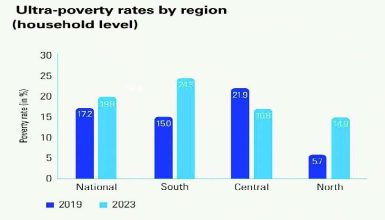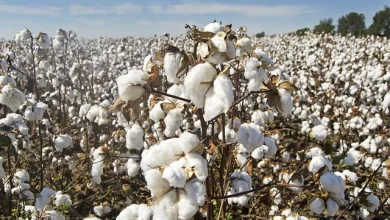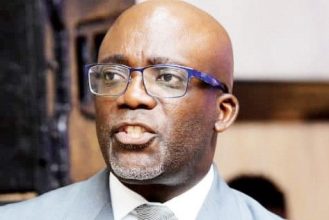Credit composition under spotlight, personal loans up
Community, social and personal loans continue to rise, accounting for the largest stock of outstanding private sector credit at 30 percent, a development economists say is undesirable for the country’s economy.
Reserve Bank of Malawi (RBM) data contained in the fourth Monetary Policy Report published on Wednesday shows individual loans accounted for K312.6 billion of the private sector credit in the third quarter of the year.
During the review period, private sector credit rose by 5.3 percent to K1.04 trillion in the third quarter of this year from K990.8 billion in the second quarter.
Speaking in an interview on Wednesay, Malawi University of Business and Applied Scicences associate professor of economics Betchani Tchereni said while continued growth of credit to the private sector is positive news, the credit spread gives direction as to where the economy should go going forward.

He said: “Most of these personal loans are used to acquire conductive goods such as electronics, motor vehicles and sometimes for holidays.
“This is a situation which on the other hand is contributing to the worsening depreciation of the kwacha. An ideal situation is where we have more investment loans than consumption loans.”
Catholic University of Malawi economics lecturer Hopkins Kawaye said the current borrowing pattern is not only dangerous for households, who will eventually have to pay back, but also the economy.
“If people are to borrow, let these loans be taken for investment avenues that can give them returns and not purely for consumption.”
Market analyst Armstrong Kamphoni on Wednesday said credit composition tells the story of where the country is and where the country needs to go economically.
He said: “The composition means there is demand for retail, which means most of our entrepreneurs in the country are into trading and this might involve, to a larger extent, importing of commodities.
“But we need to be moving to areas such as agro-processing and manufacturing as a country,” he said.
Bankers Association of Malawi president Macfussy Kawawa is quoted in a recent interview as having said that banks are doing their bit to invest in productive sectors, but growth has not been significant due to economic challenges.
“We believe we have a role to play in building a more resilient business environment that would easily contain external shocks a,” he said.
Kawawa, who is also National Bank of Malawi plc chief executive officer, said banks remain cautious on whom they lend money to.





